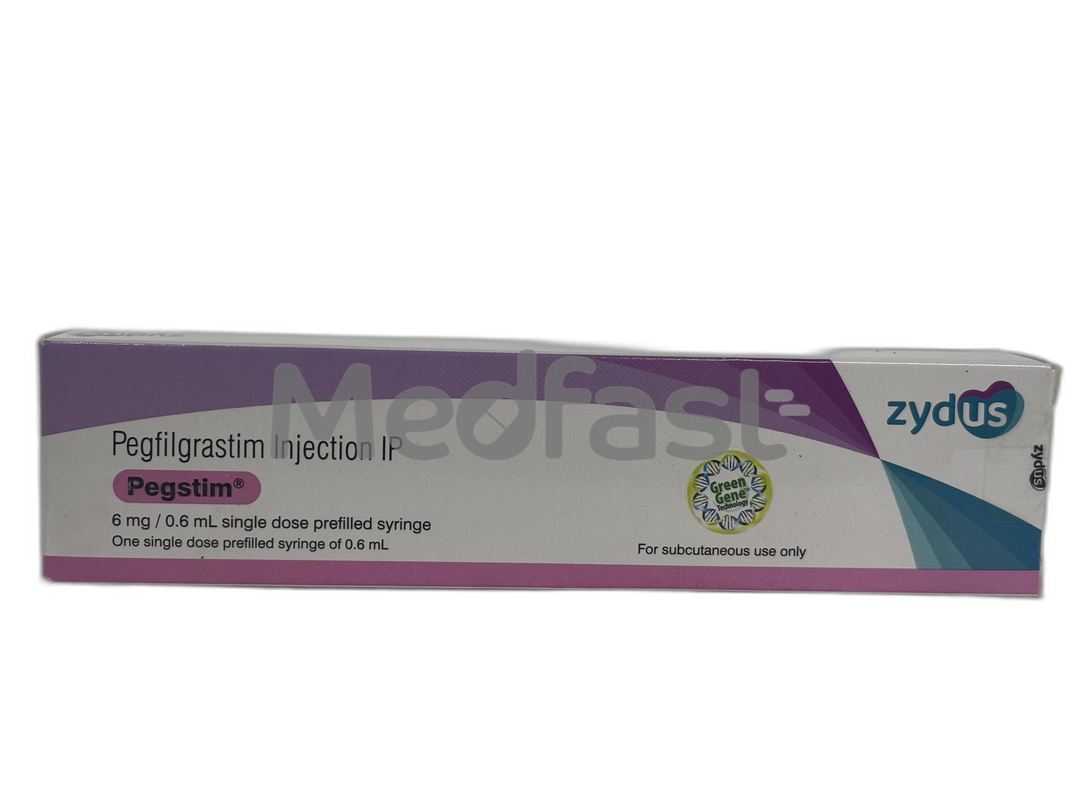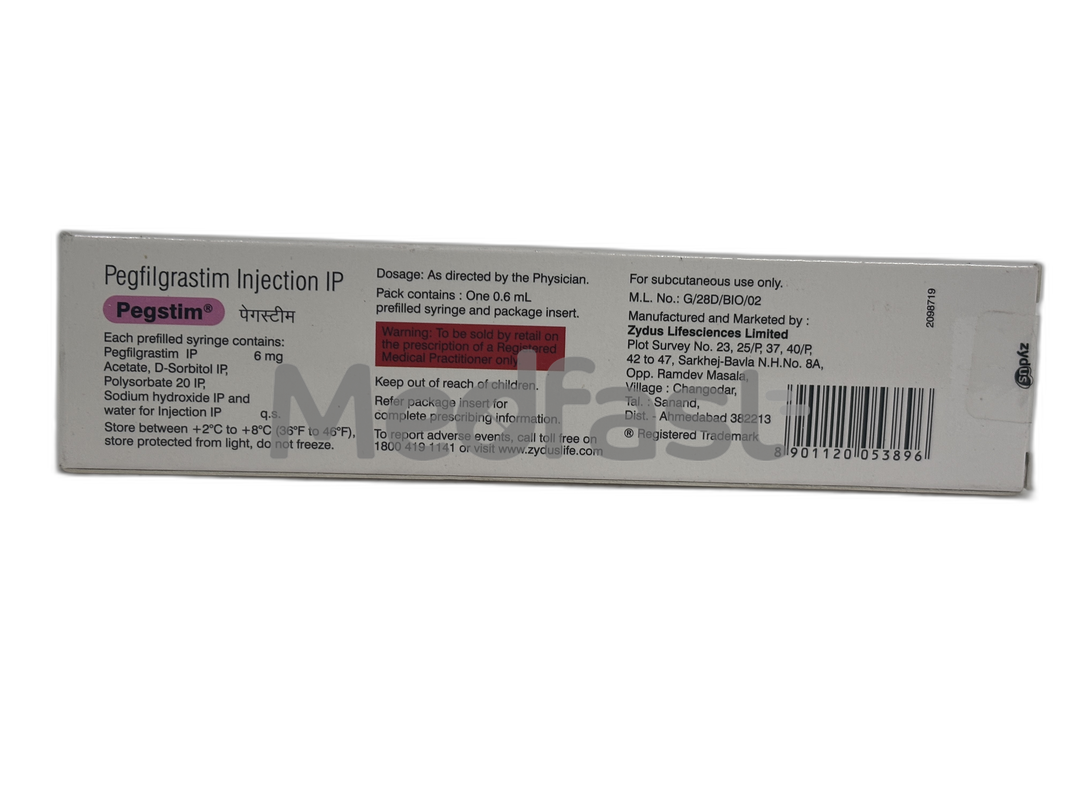Pegstim 6mg Injection PFS contains Pegfilgrastim, a long-acting form of granulocyte colony-stimulating factor (G-CSF). It is used to reduce the risk and severity of febrile neutropenia, a condition characterized by fever and a dangerously low white blood cell count that often occurs as a side effect of chemotherapy. Pegfilgrastim works by stimulating the bone marrow to produce more neutrophils, a type of white blood cell essential for fighting infections. By increasing the number of these cells, it helps the body better defend itself during periods when the immune system is weakened by cancer treatment.
This medication is also indicated in patients exposed to high-dose radiation, which can severely impair bone marrow function. In such cases, Pegstim aids in preserving the immune system by restoring white blood cell levels, improving the chance of recovery and survival.
Pegfilgrastim is a synthetic protein produced using recombinant DNA technology in E. coli bacteria. It mimics the body’s own natural G-CSF and helps accelerate the recovery of white blood cells after chemotherapy. Since chemotherapy can drastically lower WBC counts, making patients vulnerable to infections, this injection plays a critical role in minimizing complications and maintaining treatment schedules.
Before starting therapy with Pegstim, it’s important to discuss any underlying medical conditions, especially related to the liver, kidneys, or heart, as these may influence the safety or effectiveness of the drug. Additionally, patients should report any unusual symptoms, such as upper abdominal or shoulder pain, which may suggest rare but serious complications like an enlarged spleen or respiratory issues.
Commonly, patients may experience bone or muscle pain following the injection, but these effects are usually manageable. The medication is administered as a single injection under medical supervision, typically once per chemotherapy cycle, and should never be self-administered.


